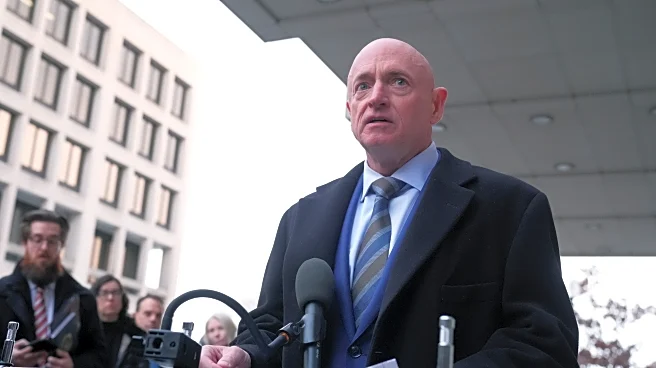Rapid Read • 8 min read
AstraZeneca has announced a significant investment of $50 billion into its U.S. operations over the next five years. This move aims to expand its manufacturing footprint in the United States, with the goal of making the country account for half of its global revenue by 2030. The announcement comes in the wake of President Trump's proposed tariffs on pharmaceutical imports, which could reach up to 200% and are expected to be implemented as early as August 1. AstraZeneca's expansion will include a new production plant in Virginia, focusing on weight-management and metabolic products, and will be the company's largest manufacturing investment globally. Additional investments will be made to expand R&D sites in Maryland and manufacturing operations in Indiana and Texas, with plans for new facilities in Massachusetts, Maryland, and California.
AD
The investment by AstraZeneca is a strategic response to potential tariffs that could significantly impact the pharmaceutical industry. By expanding its U.S. manufacturing capabilities, AstraZeneca aims to mitigate the risks associated with import tariffs and strengthen its presence in the American market. This move is part of a broader trend among major pharmaceutical companies, including Novartis, Biogen, and Johnson & Johnson, who have announced similar investments in U.S. manufacturing. The expansion is expected to bolster the U.S. economy by creating jobs and enhancing the country's pharmaceutical production capacity, potentially reducing dependency on foreign imports.
AstraZeneca's investment is expected to contribute to its revenue target of $80 billion by 2030, with half generated in the U.S. The company will focus on developing its new facilities and expanding existing ones, although specific timelines for project completion and job creation remain unclear. The pharmaceutical industry will likely continue to adapt to the evolving trade policies, with companies reassessing their supply chains and manufacturing strategies in response to tariff threats. Stakeholders, including industry leaders and policymakers, will closely monitor the impact of these investments on the U.S. economy and healthcare sector.
The expansion of U.S. manufacturing by AstraZeneca and other pharmaceutical companies highlights the industry's shift towards domestic production in response to geopolitical pressures. This trend may lead to long-term changes in global supply chains, with increased emphasis on local manufacturing to ensure stability and security. The ethical implications of such moves, including the potential for increased drug prices and access issues, will be a point of discussion among healthcare advocates and policymakers.
AD
More Stories You Might Enjoy













